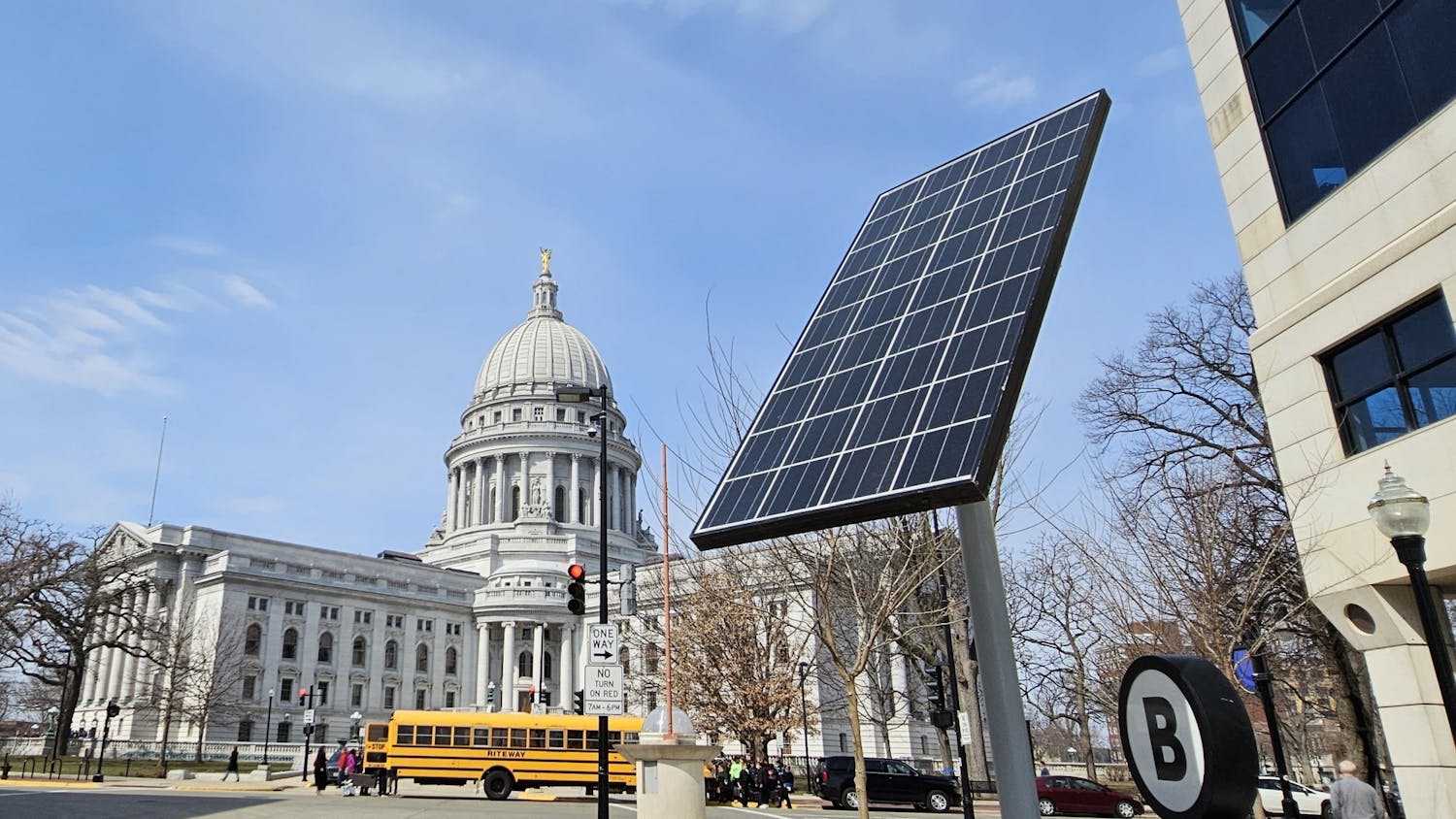April has been recognized as Sexual Assault Awareness Month since the late 1980s. More than half of all sexual assaults are committed by men against women whom they know in one or the other's residence.
Madison's Rape Crisis Center has provided services to victims/survivors of sexual violence for 30 years. In hopes of one day ending sexual violence, it has a two-fold mission: To provide support to the victims and to educate the public.
Sexual Assault Awareness Month promotes discussion and conversation about sexual violence, which is a starting point toward reaching the goal of ending sexual assault, said Kelly Anderson, executive director Rape Crisis Center. This month, the RCC has partnered with other community and campus organizations to address the issue of sexual assault.
Promoting Awareness, Victim Empowerment is a student organization that supports survivors of sexual assault, helps them heal through activism and educates the campus, said Stephanie Byrnes, chair PAVE.
PAVE was created in 2001 by UW-Madison alumna Angela Rose, who was abducted at knifepoint and sexually assaulted.
PAVE has collaborated with Dean of Students Luoluo Hong to educate the campus on the impact of sexual assault. Past events include a drag show and Hong's speech \The Date That Lasts a Lifetime: Men and Women as Partners in Preventing Rape.""
Upcoming events include a display on Bascom Hill to represent the one in four women who is sexually abused. For ""Get Up, Climb Up,"" a climbing wall will be set up in Library Mall and donations will be taken for the Dean's Crisis Fund. The funds are used for emergencies, for example, to pay for a safe place where a victim could spend a night, Byrnes said.
These organizations have been teaching audiences about the effects of sexual assault on victims, what causes the rapists to ignore the victim's feelings and what can be done to decrease assault.
One myth about sexual violence is that it only happens to women.
""Sexual assault harms both men and women,"" Anderson said. She said one-seventh of sexual assault victims are male. Men who are not victims themselves may have sisters, mothers, daughters and other female relatives who are victims.
However, men are still more likely to be the assaulter.
""Most of the media's attention is focused on the incidents, the fact that rape happens. It does not address the bigger question, why does it happen?"" Anderson said.
We need to look into how we raise boys that turn into rapists, Anderson said. There is so much pressure on young boys to become macho, tough and uncaring. And they don't stop when they are told to stop.
The media creates and reinforces negative portrayals of men and women. It emphasizes women with breast implants, not smart and capable women, Anderson said. We must change the expectations of what it means to be a man or a woman.
Anderson admits that it will be difficult to challenge culture because there are more media now, more channels on television and more video games that usually show women as the victim, as compared to 20 years ago.
""The only effective prevention is to convince men not to rape,"" said Anderson.
There are many resources on and off campus that show women how to reduce the risk of sexual assault.
Chimera teaches self-defense, how to set boundaries, be more assertive and ways to be more comfortable, Anderson said.
Both the RCC and PAVE offer support to victims of sexual assault. The RCC provides a 24-hour Crisis Line, counseling and support services, and provides advocates that will accompany the victim through the different processes in the police office and hospital.
""The most important thing you can do to help a victim is to believe them,"" Anderson said. ""Do not judge the person; let them know you care and support them. Do not take over or try to fix them because their control over their own body was taken away and they need to regain control in order to heal. We must be prepared to let them make their own decisions, even if we do not agree.""
""The most important thing about this month is to educate the community,"" said Anderson. As long as one in four women is likely to be a victim, more needs to be done.
The Campus Women's Center can be reached at 262-8093 and is located on the fourth floor of the Memorial Union. The Rape Crisis Center campus office is located at 905 University Avenue and can be reached at 265-6389. The 24-hour crisis line is 251-7273. University Health Services is located at 905 University Avenue on the fourth floor and can be reached at 265-5600. The after-hours line is 265-6565.





